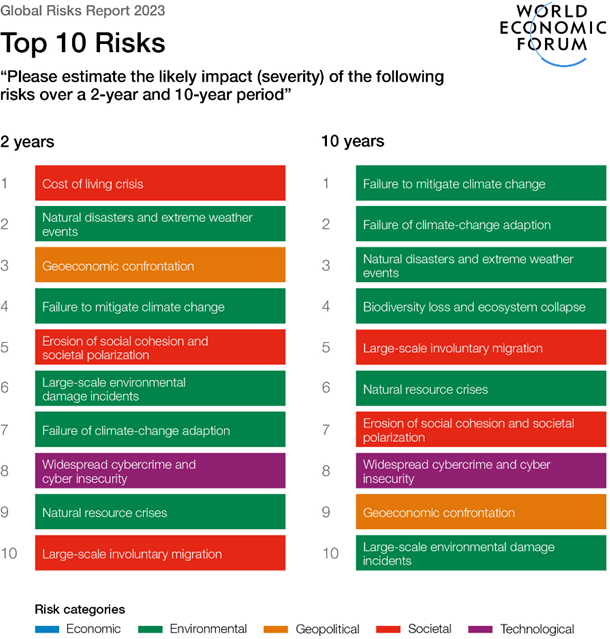As world leaders, chiefs of major companies and other elites were meeting in Davos to talk about 'Cooperation in a Fragmented World’, more doubt was being cast over plans to decarbonise and transition the energy sector, with serious questions raised over the offsetting, carbon markets and net-zero agendas, and the announcements of unprecedented profits by some of the largest in the oil and gas sector.
Energy supply is responsible for over half of greenhouse emissions globally. To mitigate climate change, the world must rapidly move away from fossil fuels, so it is a relief that, amid a sombre global context, climate conversations were still very much on the agenda this year at Davos.
The WEF’s own risk analysis for this year concluded that in the next two years the cost of living, while the biggest risk, is closely followed by extreme weather events made more likely and severe by the climate crisis. Looking out to the eight years beyond that, environmental risks top the list.

Many speakers reflected this ever-growing urgency with Antonio Guterres, Secretary-General of the UN warning, ‘The commitment to limit global temperature rise to 1.5C is nearly going up in smoke. Without further action, we are headed to 2.8C increase. The consequences, as we all know, would be devastating’.
Davos sets the tone of political focus and discussion for the year when it comes to the world’s biggest challenges. So, what were key emerging questions around energy transition and the environment, and what could they mean?
In this age of polycrisis putting the right incentives in the right place could be the difference between a promising decade of fighting for our planet or a devastating path for our civilisation.
Maria Pontes, Director of Programmes & Partnerships
Banner Image Credit: The National
Choose this if you want to use Planetary Boundaries or other Earthwatch initiatives with your local community, school or other non-commercial group.
Make a differenceChoose this to find out more about Planetary Boundaries or other Earthwatch sustainability learning experiences relevant to your business or sector.
Make a difference